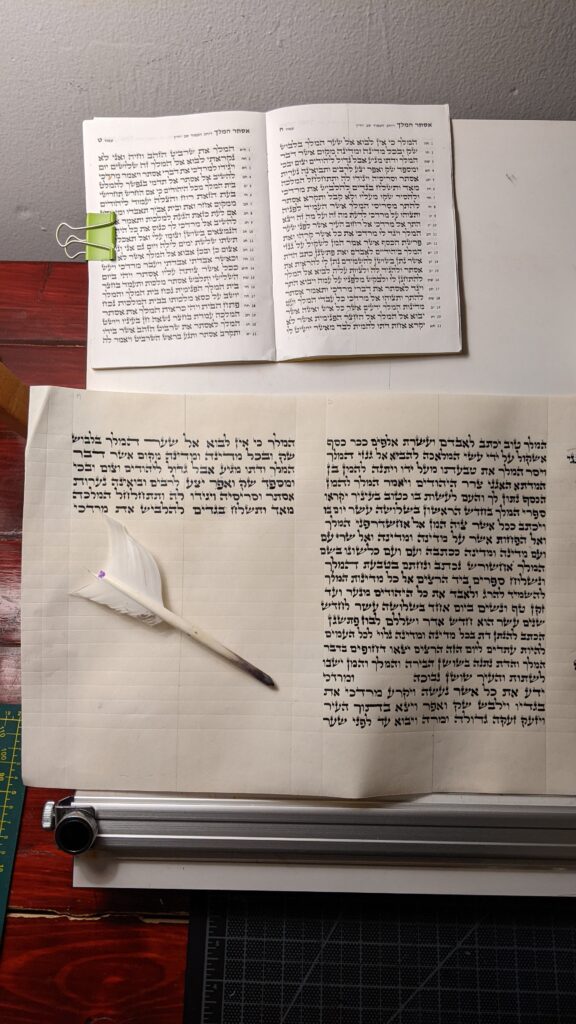
The story of Esther is one of garments and hidden truths. Queen Esther withholds her identity as a Jewish woman from her husband, King Ahashverosh, and she uses her royal attire to win his favor and support. The Zohar teaches us that Torah, too, is clothed in a garment: “Fools of the world look only at that garment, the story of Torah. Those who know more do not look at that garment, but rather at the body beneath that garment” (The Zohar: Pritzker Edition, vol. 8, p. 520.)
For the past few months, I’ve been studying sofrut (scribal arts) and writing my very own Megillat Esther. Many people have a distant relationship to the physical Torah and rarely come into direct contact with a scroll. Scribal training has been my attempt to remedy this — to build greater personal intimacy with the physical body of Torah. It’s been a chance to see beneath the garment, beneath the velvet covering and beyond the story.
In this scroll, I can see my anxiety, my rushed writing, my tentative and rough erasures, and I can see the places where I am starting to flow. I’ve learned that the Torah scroll is sacred, but it is not foreign. It is not other than us in the way that divinity can sometimes feel. It is of us. The scroll, the body of Torah, comes into the world through the work of our own hands. It sheds light on the truth of our imperfections, but also of our capacity for artistry, beauty and great care

Evolve is turning five. We’re celebrating and seeking your support. Help keep this essential resource at your fingertips.
To celebrate five years of this sacred work, we are designating the month before Purim as a time in which we fulfill the line from the Book of Esther, “The Jews had light/ Layehudim hayeta orah.” During this month, we will publish and distribute materials related to light and Purim.
Donors of $250 or more will be invited to five real-time zoom shiurim with Evolve scholars.







